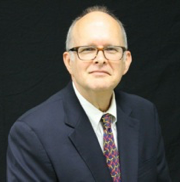January 2021 – This Month in Sacramento
THIS MONTH IN SACRAMENTO – JANUARY 2021 NEWSLETTER
Legislative Update
by Richard Markuson
Region 9 Legislative Advocate

The Legislature has adjourned until Monday, December 7, 2020. On the 7th they will convene the 2021-22 Regular Session and adopt rules of the session and pick their leaders. They will then recess until January 4, 2021. At this point – it is unclear if 2021 will look like the 2020 Coronavirus session or look more like a normal year.
One thing that will look different is the swearing in ceremony.
According to Politico, Legislative leaders decided, “the Senate and the Assembly are taking different approaches: the upper house will convene in chambers while the Assembly will gather at Sacramento’s Golden 1 Center, the city’s NBA arena blocks from the Capitol. Legislative leaders took different approaches to conducting business during the pandemic last year. Senate President Pro Tem Toni Atkins allowed for remote voting after concluding it was constitutionally sound — a decision that proved critical when Sen. Brian Jones (R-Santee) tested positive in the 2020 session’s final days, forcing Senate Republicans to participate virtually in the critical final stretch. Assembly Speaker Anthony Rendon, by contrast, believed remote voting was legally suspect and declined to allow it. Atkins said in a statement that the Senate’s distancing protocol — which includes a no-guest mandate — and its air filtration system would allow for a slimmed-down gathering in Senate chambers. ‘When Californians are changing holiday traditions and putting off graduations, weddings, and other important events, the Senate wants to make sure that we are conducting this essential public business in a way that reflects the seriousness of the times and respects the sacrifices Californians are making.’ Rendon said in a statement that moving the event out of Assembly chambers and barring guests were “difficult decisions to make” but argued they were necessary. ‘Given the circumstances of rapidly-growing COVID-19 rates across the state, we need to do everything we can to keep Members, their families, staff, and the public safe.’”
So far, no word from either house on committee hearing protocols.
Reports of Interest
The Legislative Analyst’s Office (LAO) released its report, “Expanding Access to Safe and Affordable Drinking Water in California – A Status Update,” finds “over one million Californians currently lack access to safe drinking water” due to water sources not meeting “established standards,” also finds “some Californians struggle to afford access to safe drinking water, sometimes paying in excess of 5 percent of their income on their water bills;” recommends the Legislature “provide careful oversight” of the State Water Resources Control Board’s “ongoing efforts” to ensure its Safe and Affordable Funding for Equity and Resilience (SAFER) program which provides up to $130 million annually to help improve drinking water safety is “implemented effectively and struggling drinking water systems are improved.”
The Public Policy Institute of California released a report titled “Priorities of California’s Water” that outlines “how events this past year have shifted the state’s water landscape” and “lays out priorities for local, state and federal action,” finds “some California communities did not have safe drinking water before the pandemic, and the recession has made affordability of water and wastewater an urgent crisis,” recommends “boosting resilience to multiple sources of stress while supporting economic recovery and workforce development.”
The California Hydrogen Coalition has distributed a draft report by California Air Resources Board on “Hydrogen Station Network Self Sufficiency Analysis per Assembly Bill 8,” findings include: “…state investment of up to $300 million beyond existing allocations will be required so the industry can become self-sufficient within the next decade;” and “accelerating station network development is essential to meet state and industry goals, including ‘significant acceleration’ of efforts to meet the goal of 200 stations by 2025 and 1,000 stations by 2030.”
Appointments of Interest by the Governor
As director of environmental services at the California High-Speed Rail Authority (effective November 16): Serge Stanich, Sacramento, senior conservation planner and business development manager at Westervelt Ecological Services since 2020. (Does not require Senate confirmation)
Reappointed to the San Diego Regional Water Quality Control Board: Celeste Cantu, Temecula, advisor with the Water Solutions Network since 2018.
Reappointed to the San Francisco Regional Water Quality Control Board: Jayne Battey, Half Moon Bay, owner of Miramar Farms since 2012.
Reappointed to the Central Coast Regional Water Quality Control Board: Monica Samaniego Hunter, Los Osos, chief researcher at YKT Consulting since 2018.
